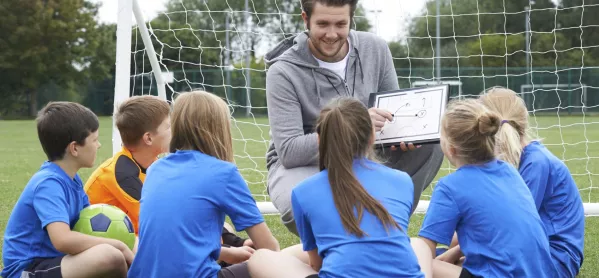How is a school like a football club? Perhaps in more ways than you might think.
I am the club secretary of the Salisbury Rovers youth football club (pictured). I’ve seen how our club supports children in gaining new skills, how it encourages them to be the best they can be and how the children grow and develop as a result of taking part.
So far, so much like school. But there is one key way in which our football club differs.
We have several disabled children at our club and it’s striking how readily they’ve been embraced by the coaches and other kids. They are just like any other player; they enjoy the time away from their parents, exploring their own space and developing their own relationships. We don’t use one-to-one support, although an adult is always around to assist a child who needs a bit of extra help, disabled or not.
This is in marked contrast to many mainstream schools, where, in my experience, children identified as having special educational needs and disability (SEND) are either alienated by a high level of support or floundering without any support at all.
I started to think about what our club does differently and realised that while the truly inclusive culture that has flourished there has been down to very little planning on our part, there are still three things that schools might be able to learn from our football club model:
- Expectations of difference
Coaches have no expectation that children will act in the same way. In schools, the drive for uniformity can unfairly penalise disabled children. But without unrealistic expectations of compliance, a culture that is accepting of difference has been allowed to develop.
- Kids take the lead
Children accept whatever adults present as “normal”. Without cues from us, they don’t care whether someone says or does something out of the ordinary. Our response is what makes the difference. In the coaching world, the adults create the environment, but it’s up to the kids to play. Given more autonomy, the children seem to behave more inclusively.
- Focus on individual needs
At the club, all the adults are focused on meeting the individual needs of every child. Putting the person before the player is at the heart of really good coaching. This is what our coaches do instinctively and without specialist training, because they believe that football, like learning, should be for everyone.
Dr Debbie Sayers runs the legal consultancy interalia.org.uk and is a co-founder and executive committee member of the Educational Rights Alliance. She tweets at @ERA_tweet
Want to keep up with the latest education news and opinion? Follow TES on Twitter and like TES on Facebook




